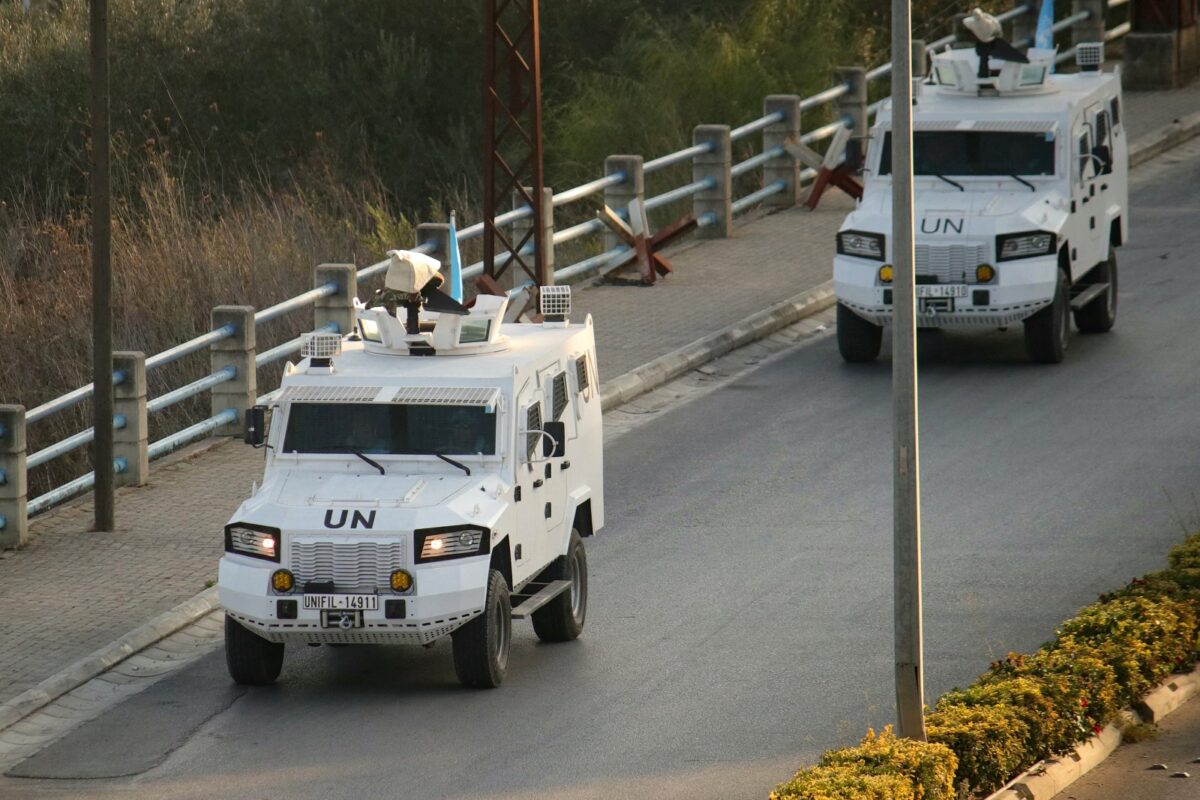
The war between Israel and Lebanon has sharply escalated in recent weeks, with Israeli airstrikes devastating large parts of southern Lebanon and Hezbollah retaliating with rocket fire. The war, which stems from long-standing tensions, has displaced thousands of civilians and raised fears of a full-scale ground invasion. Israeli officials have made it clear they will not accept a ceasefire unless Hezbollah is disarmed and pushed away from the southern border, while Lebanon, under immense pressure, is struggling to maintain its sovereignty and stability.
In response to the mounting pressure, Lebanon is ready to implement UN Security Council Resolution 1701, which involves deploying the Lebanese army south of the Litani River, caretaker Prime Minister Najib Mikati said on Monday, according to Anadolu Agency.
“We affirm our agreement and pledge to implement the ceasefire immediately with Israel,” Mikati stated following a meeting with Parliament Speaker Nabih Berri in Beirut. He emphasized that Lebanon is prepared to send its army to the southern region in coordination with the UN peacekeeping mission (UNIFIL).
However, the situation has become more complicated as Israel has increased its attacks on UNIFIL. In response, the United Nations Security Council (UNSC) expressed its support for the peacekeeping forces in southern Lebanon. In a statement released on Monday, the 15-member council urged “all parties to respect the safety and security of UNIFIL personnel and premises.” The council reiterated that UN peacekeepers and their bases “must never be the target of an attack,” while underscoring UNIFIL’s critical role in maintaining regional stability. Although the statement did not explicitly mention Israel, it follows heightened rhetoric from Israeli Prime Minister Benjamin Netanyahu, who called on UNIFIL to “heed Israel’s request and temporarily get out of harm’s way.”
Israel has demanded that UNIFIL leave its positions in Lebanon as ground operations and heavy bombing campaigns continue. These operations have already killed hundreds and displaced nearly a quarter of Lebanon’s population.
Political expert Mustafa Allouch suggests that Israel’s ongoing aggression serves as a message about its rejection of Resolution 1701. “Israel is trying to say that the implementation of 1701 is failing to provide it with the security it needs. It could also be an attempt to pressure the UN Security Council to either enforce the resolution or amend it in light of the current battle,” he said.
Adopted on 11 August 2006, Resolution 1701 calls for a complete cessation of hostilities between Lebanon and Israel, establishing a demilitarized zone between the Blue Line (the boundary between Lebanon and Israel) and the Litani River. Only the Lebanese army and UNIFIL are permitted to possess weapons and military equipment in the area.
Allouch also pointed out that “Israel is targeting Hezbollah positions near UNIFIL bases as a form of pressure on the peacekeeping forces to ensure stricter enforcement of 1701.”
Several Israeli media outlets have reported a potential ground operation in southern Lebanon. Israeli Foreign Minister Israel Katz stated on Thursday that Tel Aviv would only agree to a ceasefire once Hezbollah is pushed north of the Litani River and disarmed.
Allouch believes that Israel’s actions are deeply tied to regional dynamics, particularly its desire to curtail Iran’s influence in Lebanon. “In my opinion, despite Israel’s demands, Resolution 1559 aligns with Lebanon’s constitution, which aims to dismantle militias. The real demand should come from the Lebanese themselves, regardless of Israel’s position, to prevent such tragedies from recurring.”
Mikati acknowledged the internal challenges Lebanon faces, discussing the displacement crisis with Berri and the need to provide essential support. According to Lebanese authorities, around 118,800 people have taken refuge in 780 shelters across the country due to Israeli attacks in recent days.
Allouch emphasized the root issue: “Disarming Hezbollah has been a concern since 2005. We cannot have two competing forces in one state. Either Hezbollah complies with the law and transitions into a political party focused on education and services, or we are headed toward a one-state solution. But for this to happen, Hezbollah’s base must believe in it.”
He continued, “The will for change has to come from one place, and that is Iran. Hezbollah is an Iranian investment in Lebanon, and this has been clearly articulated by their leadership. Either there is a local decision to separate from Iran, transforming Hezbollah into a political entity without weapons, or Iran must decide to stop using Hezbollah as a tool in the region.”
Mikati stressed the urgency of electing a new president through consensus. Yet Allouch highlighted that achieving a ceasefire is not on the immediate horizon: “This war seems far from over. Israel may push for more destruction across Lebanon. We are in a phase of combat, not solutions.”








